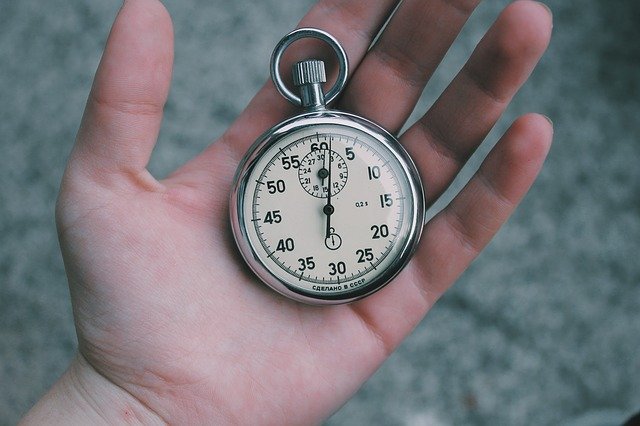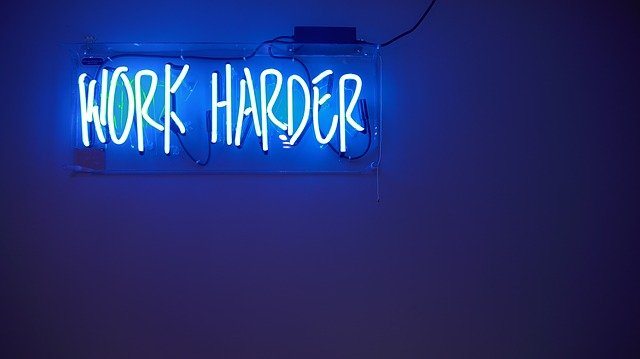
Preemptive Action
10 Biggest Struggles of PhD Students
Read a summary using the INOMICS AI tool
Starting a PhD is an incredibly daunting task. Normally at least 3 years, there are some challenges that you are almost certainly going to have to face during the program. Below we look at some of the biggest (and most common) problems that PhD students encounter.
If you are considering a PhD program, or just beginning one, advanced awareness of these stresses may help you overcome them if you ever have to make their acquaintance (don't worry, we have our fingers crossed). Plus, knowing that they are frequently experienced and nothing out of the ordinary will hopefully provide you some comfort. Okay, let's begin.
1. Isolation

One of the most common problems for PhD students is the feeling of isolation. PhD candidates often work alone, having few or sometimes no other people on their project. This happens while friends may be working in offices and in teams, enjoying a far more social side to the 9-5. Predictably, this can lead to loneliness, lack of motivation, and the fear that no one understands, or can relate to the problems you are experiencing.
As an antidote to this, it is advisable to make an effort to get into contact with other graduate students. There are many ways of doing this, for instance, through journal clubs, conferences, or networking. Being in contact with other PhD students will give you someone to talk to, complain to, and will help alleviate these disruptive and negative feelings. Simply breaking up the routine of studying can do you a whole world of good!
2. Stress

With looming deadlines, large scale projects, and a huge amount of personal investment, a PhD can be extremely stressful. This is compounded by the fact that everything is always riding on you and you alone - making the highs higher and the lows, well, let's not go there. It has been found that PhD students have high levels of mental disorders - likely related to high levels of stress they have to endure.
For this reason, it is imperative that one finds healthy ways to decompress, whether through exercise, meditation, the arts, or anything else. Any university worth its salt will also have mental health services which can be sought if things get particularly difficult. Regardless of how bad you're feeling, its always helpful to talk it through with someone. No problem is too small.
3. Conflict with your supervisor
Another common problem can be issues arising between PhD students and their supervisors. Supervisors are part-boss, part-mentor, and occasional friend. It's an odd combination, the balance of which sometimes can be hard to maintain.
When disagreements surface - and of course, over 3 years it is only natural that they will - some students can feel that they have to defer immediately to the wishes of the more senior and experienced supervisor. Again, here a supportive network of PhD students around you can help navigate these challenges.
Additionally, familiarity with the faculty in a broader sense (which is encouraged) will allow you to canvass more opinions. This may help you clear up a point of particular contention. Who knows, maybe you were right all along!
4. Funding issues

Most PhD students rely on external funding to support themselves while studying. Unfortunately, this too can be a source of concern. Funding can, at times, be insecure. It has been known, for example, for funding to be reduced while still in the middle of the PhD.
This is a precarious position to be left in and it can be extremely stressful to secure new funding. Ideally, supervisors should be on hand to help with this. One should never think twice about approaching them for advice - it's what they are there for. Still, it's also recommended that students at least have some money saved in case of emergency.
Suggested Opportunities
- Research/Project Funding Opportunity
- (Online)
- Posted 5 hours ago
Multidisciplinary Education Research Grant – 2nd edition
Starts 20 Jul at UniCredit Foundation in Milan, Italy- PhD Program, Program, Postgraduate Scholarship
- Posted 2 days ago
PhD Program in Economics - 6 Fully Funded Scholarships
at Luiss Guido Carli University of Rome in Rome, Italy- PhD Program, Program, Postgraduate Scholarship
- Posted 2 days ago
PhD Program in Management - 11 Fully Funded Scholarships
at Luiss Guido Carli University of Rome in Rome, Italy5. Time management

So much to do, so little time to do it! This is probably the mantra of our age. Learning when to jump at new opportunities and when to say no to extra tasks is a skill which every academic should develop if they are to avoid going mad. This can be honed by knowing how to prioritize. What is absolutely essential that I finish today? What, at a push, could I postpone till tomorrow?
Setting aside enough time in your day to fulfil these tasks will help this process and enable you to, when necessary, say 'nope, I literally do not have the time for that'. Rather obviously, it helps to be organized and to calendar your appointments carefully. And remember, it is better to do a few things well, than a number of things badly.
6. Work/life balance
It sometimes seems like PhD students are expected to study all the time; to be in the office every weekend and to work late every day. But this is not sustainable. You also need time for hobbies, friends, and family in order to function at peak level. This may seem a really obvious point to make, and yet, many students still suffer from the effects of having an incredibly lop-sided schedule.
Students should always remember: making time for activities outside of the PhD is vital for long-term success. A healthy social life, regular exercise, and cultural activities will be stimulating and fun. And, they're likely to make you happier. Even though you might not think about “happiness” when considering your goals for studying, you surely deserve some every now and then.
7. Lack of institutional support
Some universities are better than others at supporting PhD students. The best universities have extensive programs for helping them, through mentoring, workshops, and social events, while at other universities students are left to fend for themselves.
Graduate schools can be helpful here, as they are geared towards meeting the specific needs of PhDs. Try to find out what kind of support is offered by your institution – there may be more than you think!
8. Lack of personal support
Another challenge for PhD students is dealing with a lack of personal support. Friends, partners, and family members may not understand the worth of a PhD, and may not be supportive of the choice to pursue one. Many a PhD candidate has been distressed by a well-meaning relative asking when they will be finished with their PhD and get a real job.
This is another reason to get in contact with other PhD students, who can understand the stresses you are experiencing and give you the support you need. Sharing these commonalities also helps to make light of them. Nothing builds camaraderie like shared experiences.
9. Concerns about the future

In addition to worrying about their current projects, many PhD students feel concerned about their future too. In an uncertain job market, and with academic positions being intensely competitive, there is no guarantee that getting a PhD will lead to a desirable job (we hope it will!).
That said, research does show that having a PhD under your belt hugely increases your chances of getting one. It also increases your chances of being paid better and enjoying greater job satisfaction. Economics PhDs in particular have excellent job placement rates. To help ensure you get to enjoy all of these benefits, it's sensible to start the job hunt early.
Remember, too, all the transferable skills you develop during your PhD studies could help you to get an industry job, if you feel you have had enough of academia.
10. Problems with motivation
 Finally, with a program typically taking at least three years, it's hard for anyone to maintain motivation throughout their whole PhD project. Feeling fed up, bored, or dissatisfied with one's project is a very common experience!
Finally, with a program typically taking at least three years, it's hard for anyone to maintain motivation throughout their whole PhD project. Feeling fed up, bored, or dissatisfied with one's project is a very common experience!
When things are not going so well, and motivation is low, you should consider giving yourself a break. A few days or even a week away from your project can sometimes be really helpful, allowing you to come back to your work invigorated and able to look at it from a fresh perspective.
Maybe when you come back, you see something that before you had missed? Or even better, maybe you realize that the work you've done is actually a whole lot better than you had previously thought. THIS can be brilliantly motivating. Plus, you probably deserved a break anyway!
-
- Postdoc Job
- Posted 6 days ago
Postdoctoral Research Fellow - New Zealand Policy Research Institute
At Auckland University of Technology (AUT University) in Auckland, New Zealand
-
- PhD Program, Program, Postgraduate Scholarship
- Posted 2 days ago
PhD Program in Economics - 6 Fully Funded Scholarships
at Luiss Guido Carli University of Rome in Rome, Italy
-
- Postdoc Job
- Posted 5 days ago
Two-year Postdoctoral Research Position in Economics
At Department of Economics and Management, University of Padua in Padova, Italy












